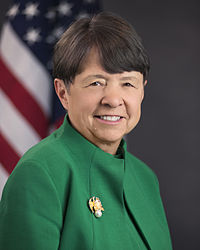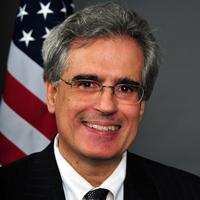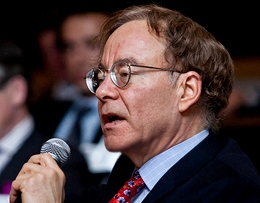
Securities Regulation


Amgen and the Fraud-on-the-Market Class Action: Frozen in Time?
The Supreme Court’s very recent decision in the Amgen case addressed whether a “merits” issue—the materiality of the alleged misstatement or omission—is such a predicate to the fraud-on-the-market presumption established in Basic Inc. v. Levinson that it must be proved …

Disclosure and Ratings Requirements in European Structured Finance
The newly amended credit rating agencies regulation coming into force on 20 June will expand the scope and application of disclosure requirements and other ratings related regulation for structured finance instruments – a concept wide enough to include many transactions

Cross-Border at the Crossroads: The SEC’s “Middle Ground”
The following post comes from a speech delivered by John Ramsay, Acting Director of the Division of Trading and Markets at the SEC. These remarks were delivered at the New York City Bar Association on May 15, 2013.
Thank you …

Taking Gatekeeping Seriously: Financial Product Approval as a Form of Systemic Risk Regulation
One of the key lessons of the recent financial crisis, and the greatest challenge facing post-crisis regulatory reforms, is the need to control and reduce systemic risk associated with financial innovation, complexity, and the growing interconnectedness of global financial markets. …
Supreme Court Decides To Hear Applicability of Sarbanes-Oxley’s Whistleblower Protections
The Supreme Court recently granted certiorari to decide whether the whistleblower protections of the Sarbanes-Oxley Act (SOX), 18 U.S.C. § 1514A, extend to employees of privately held contractors or subcontractors of a public company. The case, Lawson v. FMR,…
Morrison and Foerster Summarizes the Status of Dodd-Frank as it approaches three years
If Aesop were still in the fable-writing business, and he had been watching the last three years of Dodd-Frank Act rulemaking, we would probably be reading the Snail and the Tortoise to our kids. In this issue of Dodd-Frank at …

Should Municipal Bond Issuers be Required to Disclose Bank Loans?
You may be surprised to learn that municipal bond issuers are not required to disclose bank borrowings. I’ve heard numerous estimates that such issuers have outstanding bank borrowings in the $200 to $300 billion range, which would amount to approximately
SEC Proposes Money Market Fund Reforms
The Securities and Exchange Commission yesterday voted unanimously to propose rules to reform the money market fund industry. The overall goal is to make money market funds less susceptible to runs.
According to the SEC’s press release, “[t]he SEC’s proposal …
Covington & Burling Discusses the STOCK Act Opening Up a New Front for Insider Trading Cases
The Securities and Exchange Commission has opened what the Washington Post calls a “new front” in its “escalating … crackdown on insider trading.” At the center of this new front are entities that trade securities based on government information. Unless …

The Separation of Investments and Management
This post comes to us from Professor John Morley, who is currently an associate professor of law at the University of Virginia School of Law. He will be joining the Yale Law School faculty as an associate professor this July. …

Examining Investment Advisers: The Challenge Continues
The following is an excerpt of a speech that Commissioner Walter gave on April 16, 2013 at the 2013 NASAA Public Policy Conference in Washington, D.C.1
As you are aware, the Dodd-Frank Act transferred oversight of mid-sized investment advisers …
Wachtell Lipton Discusses Class Certification Case Standing in Contrast to Amgen
A divided Supreme Court ruled 5 to 4 [in the last week of March] that certification of an antitrust class action was not proper because plaintiffs failed to establish that damages caused by actionable antitrust injury were capable of measurement …

Regulation in a Global Financial System
The following is a speech delivered by Chairman Mary Jo White at the Investment Company Institute General Membership Meeting on May 1, 2013.
It is truly an honor to be here at the ICI, and to be here as – …
Latham & Watkins Discusses the JOBS Act after One Year: A Review of the New IPO Playbook
Latham & Watkins LLP has prepared a comprehensive report, “The JOBS Act After One Year: A Review of the New IPO Playbook.” The report focuses on Title I of the JOBS Act, which changed the initial public offering …

Securities Enforcement: 2013 Report Card
This is the season for report cards and grades. The securities laws are enforced by the plaintiff’s bar and the SEC. How well are they doing? What grades do they deserve?
I. Private Enforcement
In terms of private litigation, 2012 …
Approaching Deadline for Nasdaq-Listed Companies to Implement New Compensation Committee Standards
As annual meeting season approaches, so too does the first deadline for companies listed on the NASDAQ Stock Market (Nasdaq) to comply with amended compensation committee rules. Traditionally, evaluation of director independence of Nasdaq-listed companies differed for purposes of serving …

The Case for a Junior Equity Market
The following post comes from Professor Jeff Schwartz of the University of Utah S.J. Quinney College of Law:
The influential SEC Advisory Committee on Small and Emerging Companies recently approved a new set of recommendations. The boldest among them is …

Outmanned and Outgunned: Fighting on Behalf of Investors Despite Efforts to Weaken Investor Protections
The following speech was delivered by Commissioner Aguilar on April 16, 2013 to the North American Securities Administrators Association (“NASAA”), Annual NASAA/SEC 19(d) Conference in Washington D.C.
Good morning. Thank you for inviting me to deliver the opening remarks of …

Activist Investors and the Revaluation of Governance Rights
Equity ownership in the United States no longer reflects the dispersed share ownership of the canonical Berle-Means firm. Instead, in our new working paper, The Agency Costs of Agency Capital: Activist Investors and the Revaluation of Governance Rights, Ron …
 Sky Blog
Sky Blog